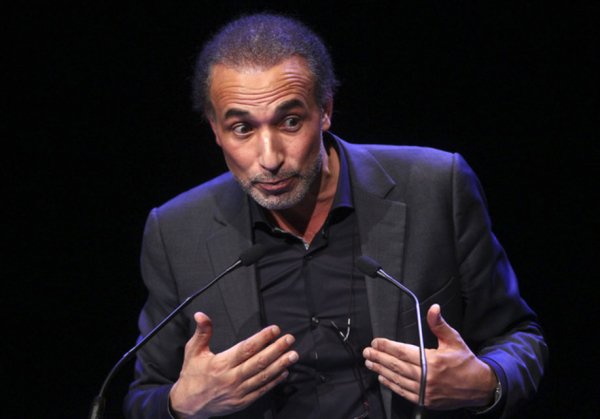Yassine Ayari, activist and engineer, examines Tariq Ramadan’s role for a generation of citizens.
Ayari recounts the string of events in the Ramadan affair since the beginning of February. First, he was indicted for rape and imprisoned. Then, it was revealed that he suffers from multiple sclerosis and other illnesses. He was then hospitalized and appealed his pretrial detention. His wife, Iman Ramadan, appeared in a video circulated by the #FreeTariqRamadan movement, and the Facebook page quickly garnered 38,000 followers. Muslim public figures such as Nabil Ennasri and Marwan Muhammad published online pieces attempting to unravel the threads of this newly political affair.
At the same time, Ramadan’s lawyers pointed to inconsistencies in the plaintiffs’ cases, including possible collusion by Caroline Fourest, who communicated numerous times with both accusers.
As Ayari notes, “Tariq Ramadan is now caught in a chain of events from which he cannot escape unscathed, whatever the outcome.”
However, she argues, waiting for Ramadan’s successor to appear is “the worst attitude” to have, for three reasons.
She writes, “The gray zone between Ramadan’s unconditional supporters and critics is the ‘young Muslims,’ who, in the mid-90s, sought a balance between their roots and their origins in France. How to think about Islam in a modern, Francophone world on the basis of oral and traditional transmission, mainly in Arabic?…Ramadan’s impact…is not insignificant: by theorizing the acclimatization of traditional and Arabic religious knowledge into a French and secular environment, he helped to remove the complexities by awakening his audience to a multiplicity of belongings.”
“Clearly,” she argues, “this need no longer exists.”
The second reason concerns Tariq Ramadan’s discourse on civic and religious engagement. His suggestions “could have been interesting for the first generation, descendants of immigrants and Muslims…25 years ago. Not only are his questions no longer posed, but the political issues are so different that even Ramadan can no longer situate himself [in the debate], between the implied conspiracies on terrorism and his call for ‘active abstention’ in the 2017 presidential elections.”
The final reason relates to Ramadan’s work, which he presents as a reform initiative. “The theological reasoning he tries to impress on a French-speaking public are therefore nothing more than an acceptable adaptation of the most traditional orthodoxy…On the question of the veil, for example, he has never hidden his position on Sunni orthodoxy, according to which it is a compulsory act.”
“Moreover,” she writes, “we are witnessing the emergence of an entire generation of reformers whose logic is not reduced to casuistic reasoning but who, on the contrary, explore the entirety of traditional Islamic knowledge, deconstruct it and extract its inevitably subjective human dimension.”
She concludes by stating: “the reality is that the Ramadan’s praxis is completely outdated. The truth, also, is that the judges’ verdicts will not do anything, the gray zone must realize the obsolete nature of this type of thought, from which it must definitively cut the cord.”
Sources
You can find the French text here.






